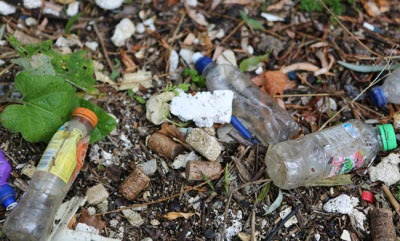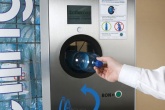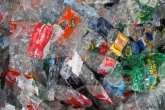Potential design of bottle deposits system to be studied by Scottish Government
The Scottish Government has commissioned Zero Waste Scotland to carry out ‘detailed work’ on how a deposit-return scheme (DRS) could work in the country, presenting a significant step in the campaign to reinvent how plastic packaging is recycled.

Now, Zero Waste Scotland will investigate design options and the associated costs and benefits of how a DRS could operate in Scotland. Options will then be put to the public for consultation before ministers in the devolved government come to a final decision.
Calls for a DRS in Scotland, and the wider UK, have been growing, with the belief that putting a financial incentive on consumers to deposit bottles in the recycling stream will increase recycling and reduce litter of troublesome single-use plastics that can escape from landfills and pollute land and marine environments.
However the surge in support for a deposit system, led by campaigns in the Daily Mail and by Sky News, is not unanimous with many worried about its impact on established council collection programmes and unsure of its potential to improve recycling and reduce litter.
Last January, former Scottish Environment Secretary Richard Lochhead said that more consideration was needed on the matter following a Zero Waste Scotland feasibility study carried out by Eunomia Research & Consulting.
A subsequent call for evidence identified a number of areas that needed greater research, and Zero Waste Scotland has also today (30 June) summarised evidence and analysis gathered as part of the process. The 49-page report considers a number of aspects including the costs and benefits for local authority collection services and manufacturers, the potential impact on material quality and how behaviour would be expected to change with a DRS.
Umpire’s call on DRS debate?
The main thrust of opposition to deposits is that examples like that of Germany, which has a reported plastic bottle recycling rate of 99 per cent, are taken from recycling systems that have developed around a DRS, as opposed to the UK, where a comprehensive kerbside system is now rooted throughout the country. Several organisations, mostly from local authorities and the packaging industry, have suggested that providing more funding for council collection infrastructure would be far more beneficial than stepping into the unknown with a new deposits system.
The new Zero Waste Scotland report states that through modelling it has found that all local authorities would make disposal savings for residual waste and will also make savings for passing on recyclate where they currently have a net cost per tonne.
It has also been suggested that iconic drinks company AG Barr’s decision to stop offering deposits on glass Irn-Bru bottles due to a fall in use shows that the public appetite for deposit systems does not exist, with kerbside collections providing a much easier avenue for recycling than taking bottles to a retailer, despite the carrot of a 10-pence reward.
The Zero Waste Scotland research concluded that the return process would be integrated into pre-occurring shopping trips and that there is ‘no conclusive evidence’ that extra journeys would have to be made, with an associated transport impact.
Stakeholders from both sides of the debate, including drinks companies, retailers, packaging companies and environmental groups will be invited to be members of the steering group.
A ‘number of issues’ to work out
This new study has been commissioned by Lochhead’s successor, Roseanna Cunningham, who has said that better understanding the impacts of a DRS would enable the government to make a decision one way or the other. Confirming the study she said: “Clearly there are a number of issues for the Scottish Government to consider when it comes to deposit return schemes that can only be addressed by carrying out work to understand the design of a potential system. I have asked Zero Waste Scotland to start this work.
“Progress will be overseen by a steering group involving representatives from the packaging industry, retailers and environmental groups, and followed by a full public consultation to ensure we are as well-informed as possible before any decisions are made.”
Scotland is not the only country considering introducing new deposit schemes, with public support also leading Parliament’s Environmental Audit Committee to open up an inquiry into ways of reducing disposable packaging’s environmental impact, with a clear focus on plastic bottles.
This inquiry has been interrupted by the election and new government but, though it has yet to be reconvened, the committee is likely to continue the investigation in the coming months.
In Australia, several states are preparing to introduce new deposit schemes, with New South Wales and Queensland bringing in systems in December this year and July 2018, and Western Australia also due to start at some point next year. The country's plastics recycling rate is currently just 20 per cent, and an Australian Senate inquiry into the threat of marine plastic pollution has outlined the need for immediate action.








